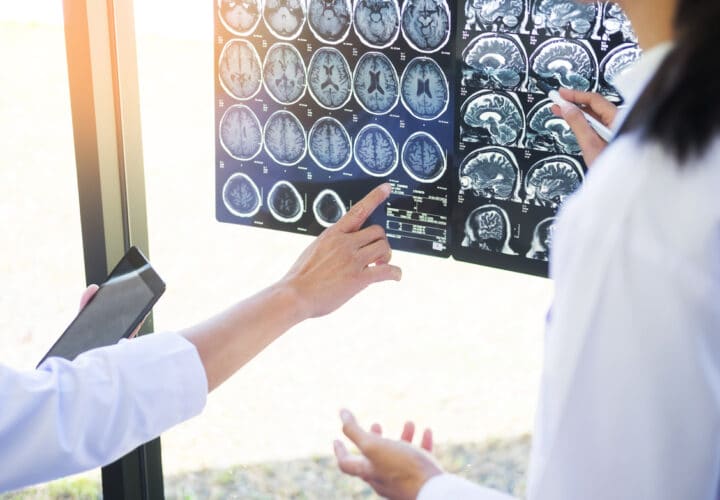Alzheimer’s begins stealthily in the brain: The first signs of Alzheimer’s are not the symptoms of forgetfulness or disorientation. The first clue, scientists have always thought, is an accumulation of beta-amyloid, a protein, in the brain. Whether the brain cannot clear the protein or is producing too much of it, we don’t yet know, but we do know that the beta-amyloid eventually forms into plaques, a biomarker of Alzheimer’s that scientists use to diagnose the disease.
The Main Signs of Alzheimer’s in the Brain Don’t Always Foretell Dementia
But a new study has found that having beta-amyloid in the brain does not doom a person to dementia. In fact, there is no one risk factor that can provide a complete picture of a person’s risk. Instead, this study said there are multiple factors like beta-amyloid, age, gender, neurodegeneration and memory loss.
The researchers from the University of California, Los Angeles, studied what’s known as the preclinical stage of Alzheimer’s—when symptoms may be present, but they’re not significant enough to change the way a person lives.
“What we found in this research is that people with preclinical Alzheimer’s disease dementia may never experience any clinical symptoms during their lifetimes because of its long and variable preclinical period,” said Ron Brookmeyer, Ph.D., a lead study author. “The high mortality rates in elderly populations are also an important factor as individuals are likely to die of other causes.”
For example, a 70-year-old male who has amyloid in the brain, but no signs of neurodegeneration and no memory loss, has a lifetime risk of 19.9 percent. If that same person does have neurodegeneration, the risk increases to 31.3 percent, according to the formula the researchers developed. If he also had memory problems, his risk would be 86 percent.
In order to develop the formula, scientists looked at data from more than 2,000 people who had participated in previous Alzheimer’s studies. They looked at factors like beta-amyloid, brain shrinkage and cognitive impairment—all things that can occur before a person gets dementia.
Is Beta-Amyloid a Sign of Alzheimer’s?
Does this mean that beta-amyloid has been too hyped up as one of the most significant signs of Alzheimer’s? This study shows that high levels of amyloid only raise your risk by a small percentage. What’s more important, the researchers said, is the total picture. For example, a 60-year-old man with high levels of amyloid has a 23 percent chance of dementia during his life, while a woman the same age with amyloid has a 31 percent risk. But when other factors show up, too—like brain shrinkage—those risks rise to 34 and 42 percent, respectively.
How the Signs of Alzheimer’s Add up to a Diagnosis
This information means that one day, a person might be able to figure out their likelihood of developing Alzheimer’s by plugging their information into a formula. This study provided a formula for lifetime risk and for a person’s risk over the next 10 years.
“Just as there are risk predictors for whether you might have a heart attack, it will be important in the future to measure the likelihood that someone will develop Alzheimer’s disease,” said Maria Carrillo, Ph.D., Alzheimer’s Association chief science officer. “In the future, when treatments are available, this would be helpful, especially for people in the stages before the clinical symptoms appear. For example, those people with the highest 10-year risk of getting Alzheimer’s dementia would be high priority to volunteer for clinical trials evaluating Alzheimer’s medications or other therapies.”
Other Signs of Alzheimer’s, According to the National Institute on Aging
- Memory loss
- Poor judgment leading to bad decisions
- Loss of spontaneity and sense of initiative
- Taking longer to complete normal daily tasks
- Repeating questions
- Trouble handling money and paying bills
- Wandering and getting lost
- Losing things or misplacing them in odd places
- Mood and personality changes
- Increased anxiety and/or aggression
This study was published in the journal Alzheimer’s and Dementia.

